Chinos y bravas
Barcelona, España, 2023-2024
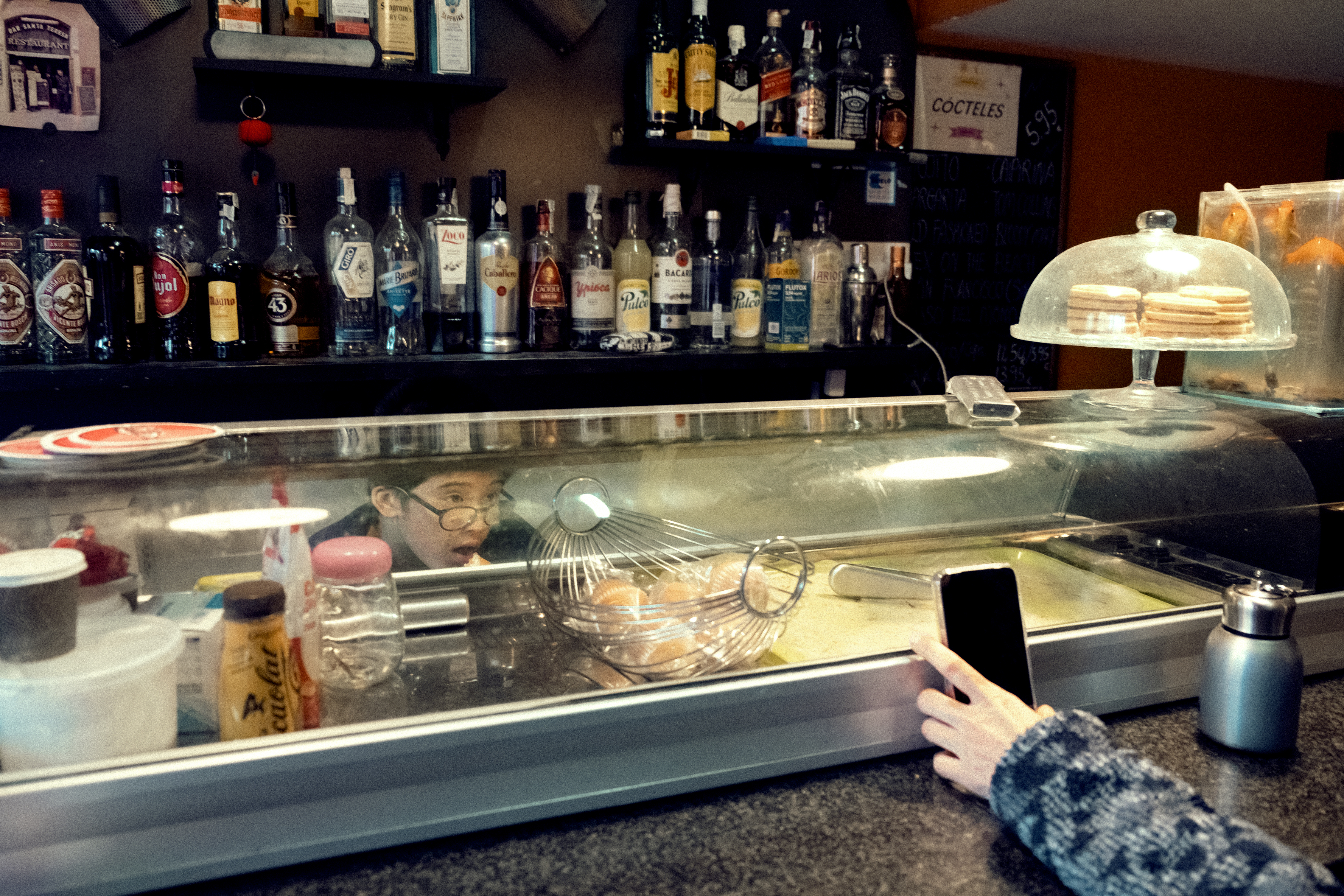


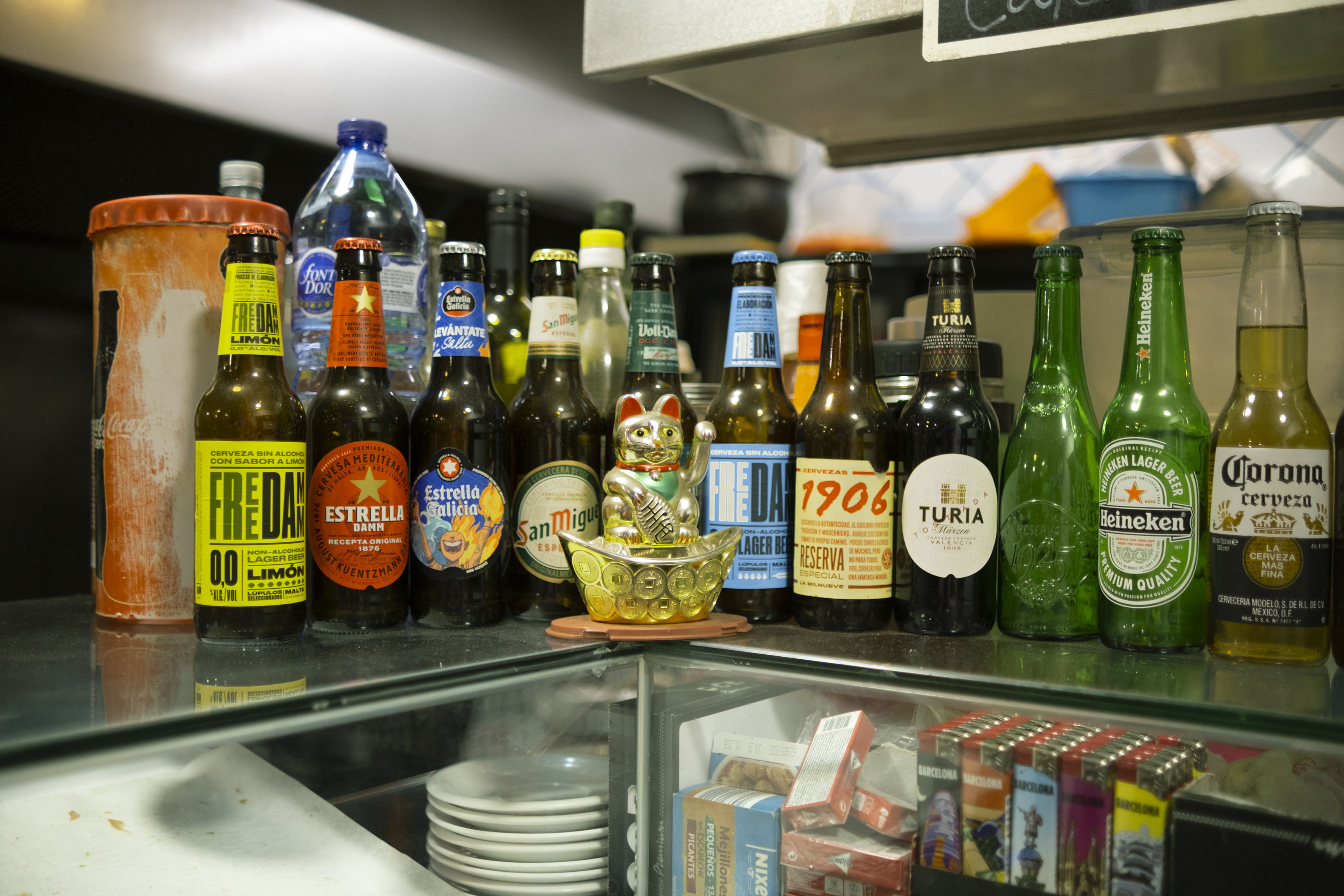













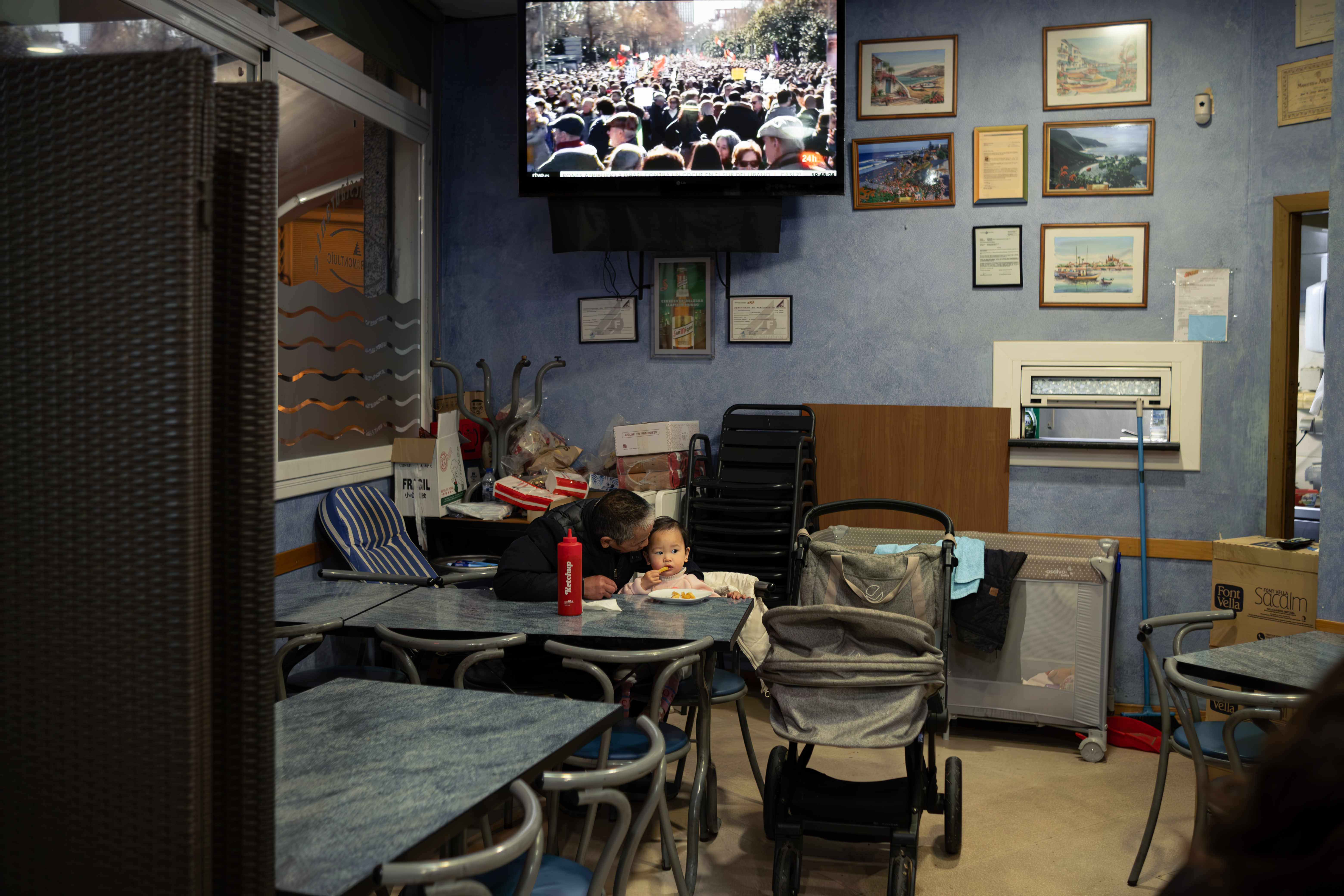

[ESPAÑOL] En Barcelona vive una de las poblaciones chinas más numerosas de España. La mayoría de esas personas está instalada desde hace años o incluso décadas. Sin embargo, aún hay muchos prejuicios sobre esta comunidad. Se dice que los chinos son cerrados, antipáticos, que no se integran. Pero, ¿podemos realmente decir que no se integran? ¿Qué significa integrarse? ¿Cómo se espera que lo hagan los migrantes en España? ¿Asemejándose a la cultura local? ¿Anulando la propia porque nos resulta desconocida?
Chinos y bravas se centra en los bares típicos de tapasque son atendidos por familias chinas. Pasé muchas horas allí, hablando con los clientes y con los dueños, observando, fotografiando y haciéndome amiga de algunas personas, en particular de Nieve, Jinxi, Lin, Quan,Yoyo,Nieve,Weny Jordi, a quienes les debo y agradezco su apertura para este proyecto. De ellos aprendí muchas cosas: sus historias, sus rutinas, sus búsquedas, y de que manera perciben Barcelona como su casa.
¿Cómo que no se integran?
La mayoría de estas familias ya tiene hijos nacidos en España, que van a la escuela bilingüe, en catalán y español, y aprenden mandarín los domingos. Los padres trabajan incesantemente sirviendo clientes “de toda la vida”, y aprenden a la fuerza un idioma que está muy lejos del suyo. Dejan los bares casi como los encontraron, sustituyendo a las familias españolas que antes los atendían sin modificar su decoración, pero agregando adornos e íconos de la suerte y la fortuna. Sirven los platos de siempre: bravas, bocadillos y tapas, y agregan a la carta su comida tradicional, como fideos salteados o empanadillas chinas.
¿Cómo que son cerrados?
En general, estas familias pasan todo el día en el bar. El bar se convierte en su casa y, así, en una puerta abierta a su intimidad. Es en los bares donde los niños estudian, los padres se comunican por videollamada con sus familiares y amigosen el otro lado del mundo, los más pequeños juegan y, cuando baja la clientela, se sientan todos juntos a comer.
Al final, migrar siempre es un proceso doble: para el que llega y para el que recibe. La integración china no es, ni tiene que ser, la asimilación al país de destino o la desaparición de su identidad colectiva. Al contrario, ambas identidades pueden convivir sin ser una contradicción. De hecho, la mayoría de los “chinos del bar” tienen dos nombres: uno chino y uno occidental. Es la coexistencia de esos dos mundos culturales en un mismo espacio, y no la fusión, lo que significa verdaderamente la integración.
----------
[ENGLISH] In Barcelona, there is one of the largest Chinese populations in Spain. Most of these people have been living there for years, even decades. However, there are still many prejudices about this community. It is said that the Chinese are closed off, unfriendly, and do not integrate. But can we really say they do not integrate? What does it mean to integrate? How are migrants in Spain expected to do so? By resembling the local culture? By erasing their own because it is unfamiliar to us?
Chinos y bravas focuses on typical tapas bars run by Chinese families. I spent many hours there, talking with the customers and the owners, observing, photographing, and befriending some people, particularly Nieve, Jinxi, Lin, Quan, Yoyo, Nieve, Wendy, and Jordi, to whom I owe and thank for their openness to this project. From them, I learned many things: their stories, their routines, their quests, and how they perceive Barcelona as their home.
How can they not be integrated?
Most of these families already have children born in Spain, who attend bilingual schools in Catalan and Spanish, and learn Mandarin on Sundays. The parents work tirelessly serving long-time customers and forcibly learn a language that is far from their own. They leave the bars almost as they found them, replacing the Spanish families who previously ran them without changing the decor, but adding ornaments and icons of luck and fortune. They serve the usual dishes:bravas, sandwiches, and tapas, and add their traditional food to the menu, such as stir-fried noodles or Chinese dumplings.
How can they be closed off?
In general, these families spend all day in the bar. The bar becomes their home and, thus, an open door to their intimacy. It is in the bars where the children study, the parents communicate via video calls with their family and friends on the other side of the world, the little ones play, and when the clientele decreases, they all sit together to eat.
In the end, migration is always a double process: for those who arrive and for those who receive. Chinese integration is not, nor does it have to be, assimilation to the host country or the disappearance of their collective identity. On the contrary, both identities can coexist without being a contradiction. In fact, most of the "Chinese of the bar" have two names: one Chinese and one Western. It is the coexistence of these two cultural worlds in the same space, and not the fusion, that truly means integration.


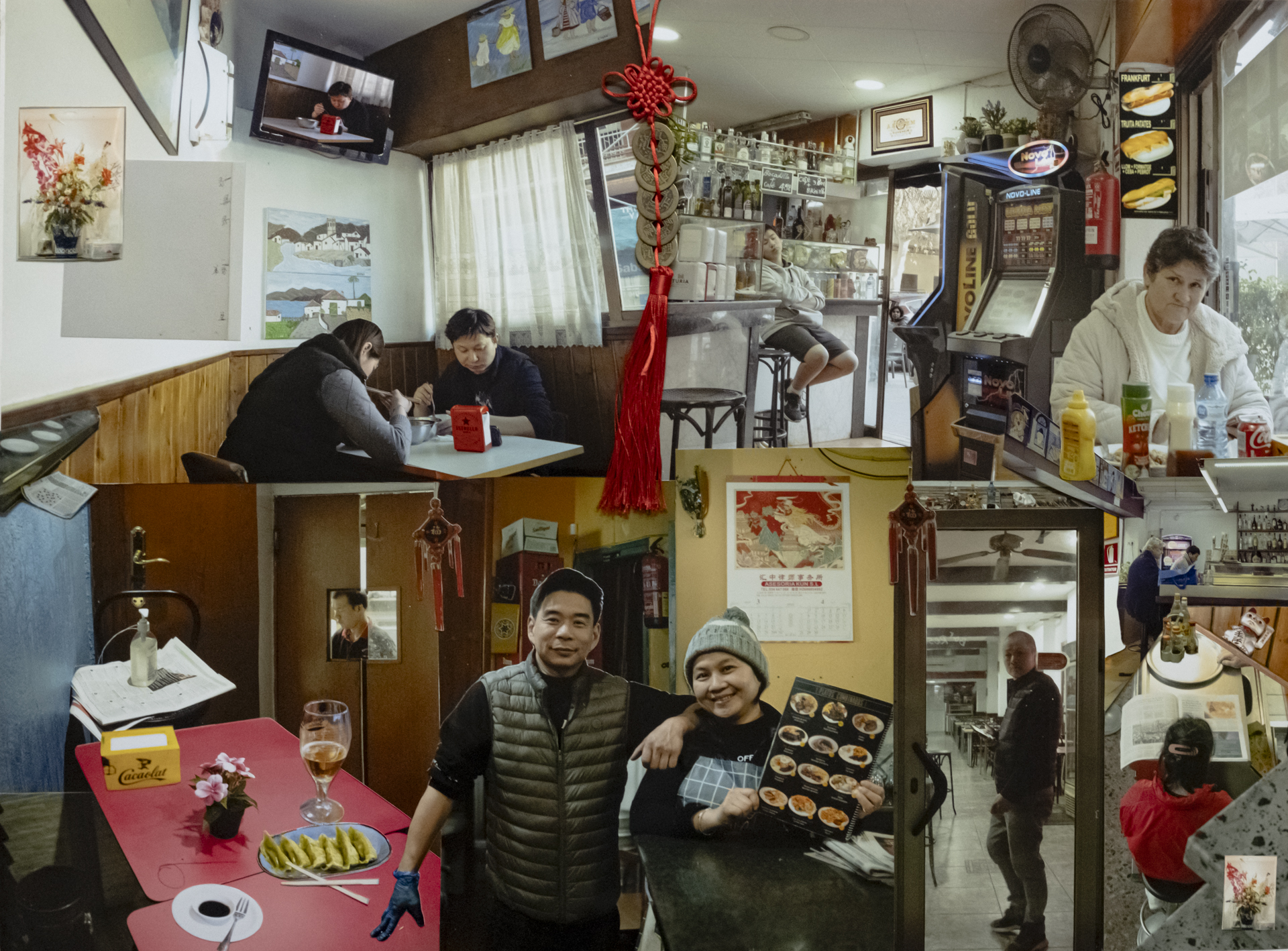
EXPOSICIONES / EXHIBITIONS
* “Burbujas de Barcelona” - Biblioteca Agustì Centelles - Abril/Mayo 2024

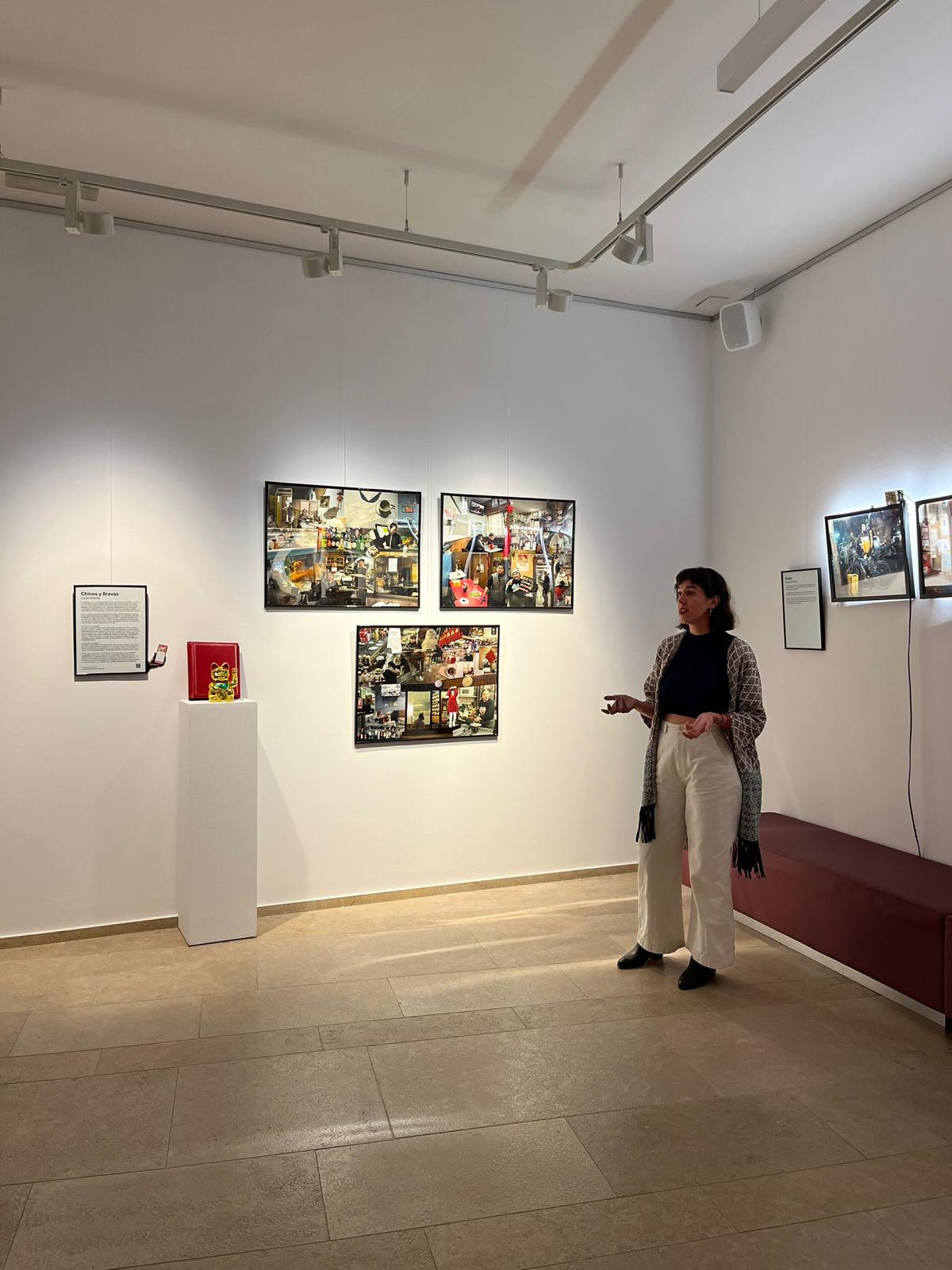
* “ Communauté et résilience“ - Festival OFF Perpignan 2024 - VISA POUR L’IMAGE - FESTI

* Premio al Mejor Reportaje Fotoperiodístico en Festival Transhumant 2024